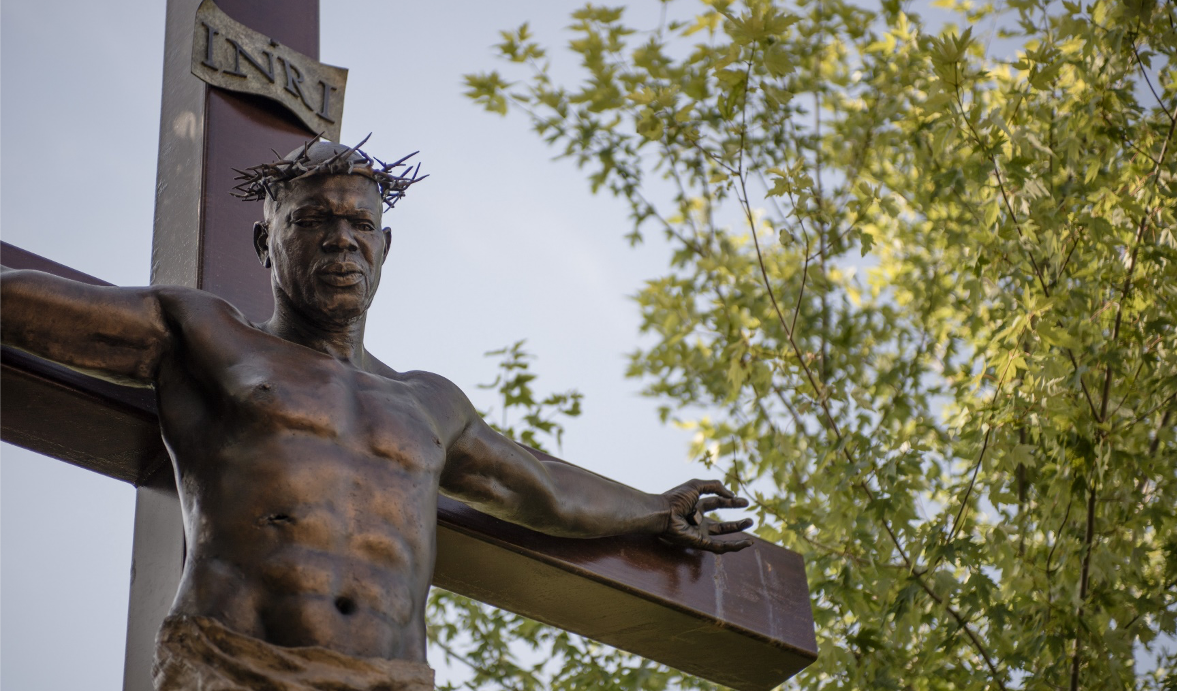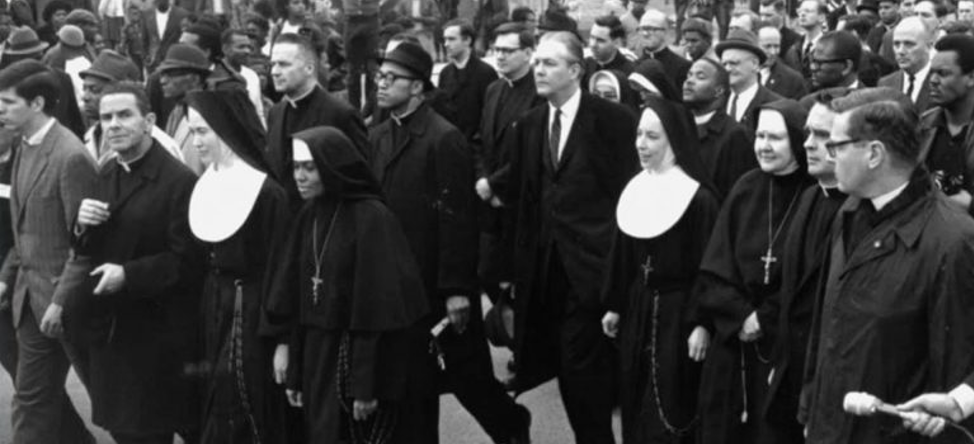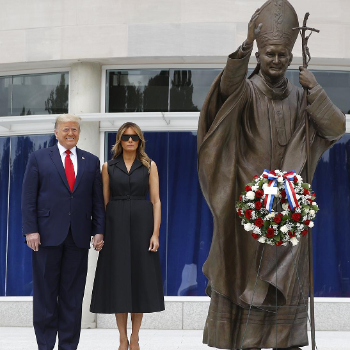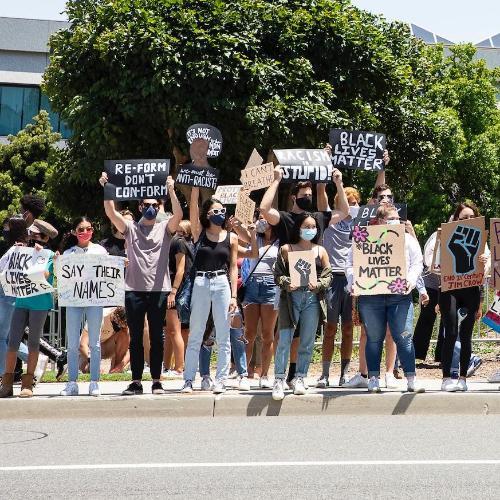Learning Community: Racial Justice and Catholicism

Van Ek-Fedde Crucifix and Meditation Garden, Regis University
Faculty and Staff Learning Community: Racial Justice and Catholicism
On June 19, 2020, President and CEO of Catholic Charities of Eastern Washington Rob McCann shared a seven-minute video with his staff and clients in response to the recent killing of George Floyd by a white police officer. Decked out in a Catholic Charities shirt and baseball cap, Dr. McCann announced with great humility: “I am a racist. How can I not be? A white person living in America where every institution is geared to advantage people who look like me, it’s seemingly impossible for me to be anything other than a racist.” Nor did he stop there but rather also offered an apology on behalf the institutions that he serves: “My Catholic Church, and my Catholic charities organization, is racist. How could they not be?” In the course of his message, Dr. McCann vowed to do better as an individual and as the leader of a major charitable organization and declared his support for Black Lives Matter. Two weeks later, Bishop Thomas Daly of the Diocese of Spokane, which includes Catholic Charities of Eastern Washington, issued a reply, and objection, to Dr. McCann’s message and in particular to his support of Black Lives Matter, for, according to Bishop Daly, “BLM is in conflict with Church teaching regarding marriage, family and the sanctity of life. Moreover, it is disturbing that BLM has not vocally condemned the recent violence that has torn apart so many cities. Its silence has not gone unheard. One need not stand with BLM to stand for Black lives.”
This Faculty and Staff Learning Community (FSLC) takes the confrontation between Dr. McCann and Bishop Daly as emblematic of the Church’s complicated and often contradictory engagement with race and racism in the United States, both historically and in the present, amidst renewed calls for racial justice in the wake of George Floyd’s tragic death. It is also a response to President Snyder’s charge to the LMU community in his letter dated June 16, 2020, to ensure “that our organizational climate and culture are anti-racist, equitable, and inclusive, with particular attention to anti-Black racism.” At LMU, an honest analysis of organizational culture demands that we engage critically with our Catholic culture, which has both contributed to systems of anti-Black and other forms of racism in the United States and promoted a vision of racial justice grounded in a belief in the inalienable dignity of all human beings understood as created in the image and likeness of God.
This program assumes that we cannot engage meaningfully in the work of dismantling racism at LMU without first understanding the complicity of the Catholic Church in promoting and sustaining racism in institutions including Catholic universities. The approach to the topic will be neither apologetic nor defensive but critical. At the same time, we will look to the Church’s spiritual, social, and pedagogical traditions for resources that can aid in creating a more just and more equitable university. We will also discuss what it means to cultivate anti-racist attitudes and practices in our personal and professional lives.

Women and men religious joining the march in Selma, AL (1965). Sisters pictured include (L-R): Sr. Roberta Schmidt, CSJ, Sr. Antona Ebo, FSM, Sr. Rosemary Flanigan, CSJ, and Sr. Eugene Marie Smith, FSM.
Learning Outcomes:
By completing this program, faculty and staff will be able to
- describe the Catholic Church’s role in both enabling racism to flourish in the United States and promoting reconciliation and justice;
- advocate effectively on behalf of systemic reform for racial justice at LMU;
- contribute to the progress of racial justice by cultivating anti-racist attitudes and practices with respect to their teaching, research, mentoring, service to the institution and its students, and other professional activities.

Selected Topics:
Each meeting of the FSLC will have a theme. Selected topics include:
- Race and the 1960s: Vatican II and the Civil Rights Movement
- The History of Black Priests, Brothers, and Sisters in the United States
- Black Liberation and Womanist Theologies
- What the Church Has Said: The U.S. Bishops’ Pastoral Letters on Race
- What the Church Has (Not) Done: Racial Justice and the Catholic Church
- The Black Church in the United States
- Race and Catholic Higher Education
- Confronting Whiteness and White Privilege in Catholic Institutions
For each session, readings and other media on these topics will be paired with chapters from Ibram X. Kendi’s How to Be an Antiracist.
Each participant in the FSLC will receive copies of:
- Shawn Copeland et al, eds., Uncommon Faithfulness: The Black Catholic Experience (Orbis Books, 2009),
- Bryan N. Massingale, Racial Justice and the Catholic Church (Orbis Books, 2010), and
- Ibram X. Kendi, How to Be an Antiracist (One World, 2019).
Additional readings will be posted to Brightspace. The reading list for the FSLC privileges scholarly essays, articles and op-eds from the popular press, and lectures by Black authors and authorities.
Additional Information:
- The FSLC is open to all fulltime faculty and exempt staff upon successful application.
- All faculty and staff selected to participate will receive a $500 stipend.
- The FSLC will meet every third Friday beginning September 18, 2020, from 3:00 until 4:30. While campus remains closed, meetings will be conducted via Zoom. Meetings will take place: 9/18, 10/9, 10/30, 11/20, 12/11, 1/22, 2/12, 3/5, 3/26, 4/16, 5/7.
- John Sebastian, Vice President for Mission and Ministry, will serve as convener/facilitator. Meetings of the FLSC will emphasize discussion of readings and videos with occasional guest presentations. Participants should expect to spend 3-4 hours preparing for each meeting.
This FSLC is a project of the Office of Mission and Ministry in collaboration with the Office of Intercultural Affairs and the Center for Teaching Excellence. Mission and Ministry is charged with forming faculty and staff at LMU to be advocates on behalf of the university’s mission: the encouragement of learning, the education of the whole person, and the service of faith and promotion of justice.
For more information, write to John.Sebastian@lmu.edu.
